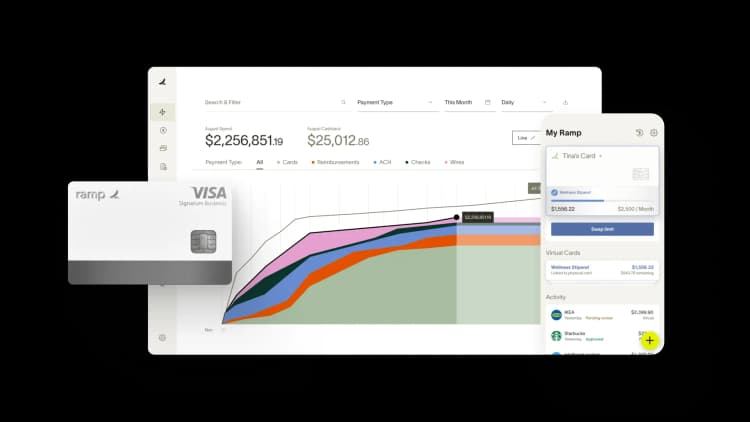
- What is vibe marketing?
- Where did vibe marketing come from?
- How does vibe marketing work, and how is it used today?
- Does vibe marketing matter?
- TL;DR

What is vibe marketing?
Vibe marketing is a modern, AI-powered approach to brand building that uses generative and predictive AI tools to craft and optimize brand expression—from voice and tone to visuals and cultural alignment. It shifts marketing away from product-first messaging toward perception engineering, where the goal is to shape how the brand feels and resonates across channels, at scale.
Vibe marketing is:
- Using AI to simulate, test, and refine emotional tone and cultural fit
- Rapidly generating campaign variations that align with brand identity
- Continuously optimizing messaging based on audience sentiment signals
The system that shapes and iterates on that output using AI workflows is what defines the practice of vibe marketing.
Where did vibe marketing come from?
The idea of “vibes” in digital culture is somewhat old—but vibe marketing as a technical discipline emerged in the post-generative-AI era (2023–2025). As tools like ChatGPT, Midjourney, and more enter mainstream marketing workflows, teams began to operationalize a new kind of brand development: one driven by prompt engineering, real-time feedback loops, and generative asset libraries.
The term drew inspiration from “vibe coding”, a concept introduced by Andrej Karpathy in early 2025 to describe a prompt-first, AI-driven software development style. Vibe marketing is its branding counterpart: describe the vibe you want, run the model, test variations, repeat.
Early adopters—especially in consumer tech, fashion, media, and CPG—used generative AI to:
- Spin up hundreds of creative variations across formats (ads, UGC, videos)
- Analyze tone fit using LLM-powered sentiment tools
- Rapidly adapt to cultural moments without reinventing the brand wheel
As tooling matures, vibe marketing becomes a new layer in modern brand operations.
How does vibe marketing work, and how is it used today?
Vibe marketing involves using AI tools to handle creation, simulation, and evaluation of brand-aligned content. The workflow typically includes:
1. Prompt engineering for content creation
Marketers use tools like ChatGPT, Jasper, or Claude to generate:
- Brand-aligned captions, ad copy, landing page headlines
- Visual assets using Midjourney, Runway, DALL·E
- Brand narrative explorations in different tones, voices, or moods
These prompts are not one-and-done—they’re iterated with structured variables, such as audience persona, emotional tone, platform type, or campaign objective.
2. AI-based “Vibe testing”
Generated assets are then tested with:
- A/B tests of tone or emotion across audiences
- Sentiment scoring tools (LLMs, social listening APIs, or user panels)
- Engagement prediction engines that simulate likely performance
3. Cultural trend monitoring
Teams integrate tools like Google Trends or LLM-based summarizers to:
- Track emerging internet culture moments
- Align brand narratives with relevant micro-trends
- Avoid flat messaging
4. Human supervision and refinement
Marketers remain critical to:
- Defining ethical guidelines
- Maintaining long-term brand consistency
- Ensuring creative nuance that AI can’t fully own
Does vibe marketing matter?
Vibe marketing allows teams to scale brand voice, adapt to culture, and launch campaigns in a fraction of the time.
It matters because:
- AI fluency is becoming a brand moat: Companies that master AI tooling can respond faster, test more precisely, and stand out with consistency
- Cultural adaptability is a growth lever: Vibe marketing enables lightweight brand iteration to match real-time sentiment and trends
- Team structure is evolving: Content, brand, and growth teams now collaborate via shared prompt libraries, “vibe guidelines,” and AI-generated creative systems
However, with anything assisted by AI, it's always important that marketers verify their processes and campaigns with care.
TL;DR
Vibe marketing is the AI-assisted practice of shaping brand expression through prompt-driven content generation, emotional tone testing, and real-time cultural alignment. It’s also about using machines to systematize the creative intuition behind modern brands—at scale, with speed, and with measurable impact.

Don't miss these
“In the public sector, every hour and every dollar belongs to the taxpayer. We can't afford to waste either. Ramp ensures we don't.”
Carly Ching
Finance Specialist, City of Ketchum

“Ramp gives us one structured intake, one set of guardrails, and clean data end‑to‑end— that’s how we save 20 hours/month and buy back days at close.”
David Eckstein
CFO, Vanta

“Ramp is the only vendor that can service all of our employees across the globe in one unified system. They handle multiple currencies seamlessly, integrate with all of our accounting systems, and thanks to their customizable card and policy controls, we're compliant worldwide. ”
Brandon Zell
Chief Accounting Officer, Notion

“When our teams need something, they usually need it right away. The more time we can save doing all those tedious tasks, the more time we can dedicate to supporting our student-athletes.”
Sarah Harris
Secretary, The University of Tennessee Athletics Foundation, Inc.

“Ramp had everything we were looking for, and even things we weren't looking for. The policy aspects, that's something I never even dreamed of that a purchasing card program could handle.”
Doug Volesky
Director of Finance, City of Mount Vernon

“Switching from Brex to Ramp wasn't just a platform swap—it was a strategic upgrade that aligned with our mission to be agile, efficient, and financially savvy.”
Lily Liu
CEO, Piñata

“With Ramp, everything lives in one place. You can click into a vendor and see every transaction, invoice, and contract. That didn't exist in Zip. It's made approvals much faster because decision-makers aren't chasing down information—they have it all at their fingertips.”
Ryan Williams
Manager, Contract and Vendor Management, Advisor360°

“The ability to create flexible parameters, such as allowing bookings up to 25% above market rate, has been really good for us. Plus, having all the information within the same platform is really valuable.”
Caroline Hill
Assistant Controller, Sana Benefits






